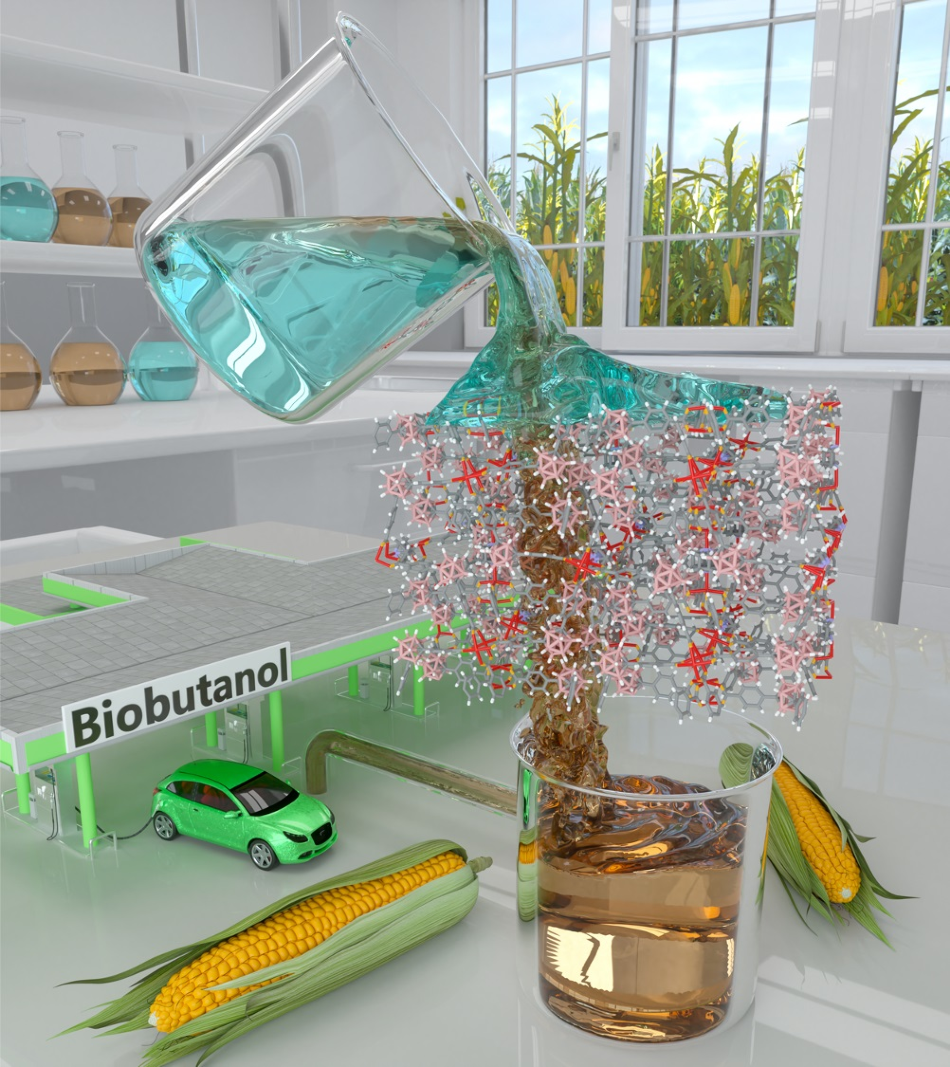Apr 28 2020
An international team of researchers has taken a critical step forward in achieving commercially feasible production of biobutanol. An alcohol with robust potential as a fuel for gasoline-driven engines, biobutanol could be an alternative to fossil fuels.
 Biobutanol separation method. Image Credit: Oregon State University.
Biobutanol separation method. Image Credit: Oregon State University.
The crucial advance is the creation of a new metal-organic framework (MOF) that can effectively isolate biobutanol from the mixture of fermented biomass required to produce this fuel.
The study results were published recently in the Journal of the American Chemical Society.
According to Kyriakos Stylianou, the corresponding author of the study from Oregon State University, the team is currently seeking collaborations with industry to optimize the separation technique with the help of new metal-organic framework.
If the method performs well, it will turn out to be a vital achievement on the path toward non-reliance on fossil fuels.
Biofuels are a sustainable and renewable fuel alternative, and biobutanol has recently emerged as an attractive option compared to bioethanol and biodiesel. But separating it from the fermentation broth has been a significant obstacle on the way to economically competitive manufacturing.
Kyriakos Stylianou, Chemistry Researcher, College of Science, Oregon State University
Also called butyl alcohol, butanol is more closely related to gasoline compared to ethanol. It can be synthesized from petroleum or produced from biomass. Bioethanol, or ethyl alcohol, is a common biofuel additive but includes considerably less energy for each gallon compared to gasoline. It can also cause damage to the components of the engine.
ABE fermentation (acetone-butanol-ethanol) is the process through which biobutanol is produced. The result is a watery broth with a maximum of about 2% butanol by weight. Thus, there is a need for a separate tool with the ability to function well in an aqueous surrounding and when organic solvents are present (here, acetone)— an essential ingredient in products such as paint thinner and nail polish remover.
Stylianou and collaborators at universities in Spain, the United Kingdom, China, and Switzerland produced a new metal-organic framework using carborane-carboxylate ligands (called mCB-MOF-1) and copper ions.
The new MOF can isolate butanol from the fermentation broth through the process of adsorption, with higher efficiency compared to distillation or any other prevalent techniques. The MOF stays stable in hot water, organic solvents, and in both basic and acidic aqueous solutions.
Biofuels can augment energy security and supply and also can be a big part of an energy plan that actually captures and stores carbon, which would be huge for meeting targets for combating climate change.
Kyriakos Stylianou, Chemistry Researcher, College of Science, Oregon State University
Stylianou continued, “Biobutanol is better than bioethanol for a variety of reasons, including that it’s almost as energy-dense as gasoline and mixes well with gasoline. And biobutanol can also potentially replace synthetic butanol as an essential precursor for a range of industrial chemicals.”
The research was financially supported by the Oregon State University, the Generalitat de Catalunya, MINECO, the UE Feder Program, and the National Natural Science Foundation of China.
The study on biobutanol was Stylianous’s second major MOF-related paper in the recent past. A study by Stylianou on a MOF that can remove carbon dioxide (CO2) from smokestack emissions was published last December in the Nature journal.
Also, the further step in this front will include scaling: ways to create and test the MOFs on a sufficiently large scope to address CO2 emissions of industries.
Source: https://oregonstate.edu/